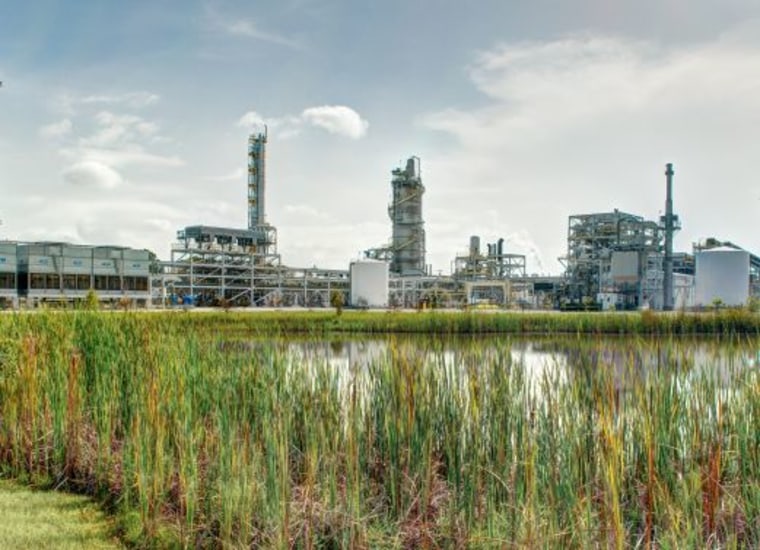Commercial quantities of the alternative fuel ethanol are being produced from wood waste and other vegetative matter, a chemical company announced Wednesday. The milestone holds potential to curb the controversial practice of using corn kernels to brew the fuel that is commonly mixed with gasoline.
Several companies have been racing in recent years to develop the technology required to produce ethanol from cellulose — the woody parts of plants — and many are close to firing up commercial facilities. INEOS Bio is at the finish line.
"The breakthrough would be that they are going to have the first commercial sale," Jim McMillan, a research engineer at the Department of Energy's National Renewable Energy Laboratory in Golden, Colo., told NBC News.
"And we all want to see commercial sales of cellulosic biofuels … we'd like to expand the options and move to a more sustainable feedstock basis that doesn't potentially compete with food and feed," he added. "So there are lots of reasons to be excited."
A different brew
Corn and other grain-based ethanols are produced using essentially the same process that a brewery uses to brew beer: sugars are extracted from the grains and inoculated with yeast that ferment the sugars into ethanol.
INEOS Bio begins with wood waste and other vegetative matter and gasifies it — a cooking process that turns it into an energy-rich mix of carbon monoxide and hydrogen. Bacteria then feast on the gas mix, fermenting it to ethanol for distillation.
Heat and other gases produced in the process are captured to generate power needed to run the facility; the excess is sold to the surrounding community. For a more detailed explanation, check out the video below from INEOS Bio.
The process was scaled up at the company's Vero Beach, Fla., plant and on Wednesday chief executive Peter Williams announced in a statement that "we are producing commercial quantities of bioethanol from vegetative and wood waste, and at the same time exporting power to the local communities."
By the end of the year, the company aims to be on track to annually produce 8 million gallons of cellulosic ethanol and 6 megawatts of renewable power with municipal food and yard waste.
Risks remain
McMillian, who tracks INEOS Bio along with other companies in the ethanol industry, said now that the technology appears capable of producing millions of gallons of the fuel a year, the fuel needs a market.
Currently, most of the U.S. gasoline supply contains a 10 percent mix of ethanol. "Unless we get all of the pumps to go up to" a mixture of 15 percent ethanol "there is kind of a market wall in terms of how much ethanol we can use," he said.
There's also the question of start-up costs to produce the fuel. INEOS Bio received $50 million in government stimulus funds in 2009 to build the Vero Beach facility and several other players in the industry have received federal grants as well, McMillian noted.
Nevertheless, he added, "the technology itself is looking pretty good now," which is a milestone worth celebrating as the world looks for alternative sources of energy that don't push up the price of food.
John Roach is a contributing writer for NBC News. To learn more about him, visit his website.
